Debt Collection Agency in Nigeria
Accelerate Debt Collection in Nigeria with DebtBucks Recoveries Limited—your local collections partner. Outreach, skip tracing, and legal escalation when required. Start now, no upfront fees; pay only on success. Learn first? Read the Nigeria guide.

Your Advantage with Debitura for Debt Collection in Nigeria

Fast, Simple & Risk-Free Debt Collection in Nigeria
Debitura is a global, tech-enabled collections platform working with locally registered agencies and law firms in 183 countries. In Nigeria, your case is handled by DebtBucks Recoveries Limited, a CAC-registered collections firm in Port Harcourt.
- Risk-free pricing: No fees unless we succeed.
- Quick setup: Submit invoices in a few clicks.
- Real-time tracking: Live status, actions, and payments in one portal.
- Compliance: Aligned with the Nigeria Data Protection Act 2023, FCCPC conduct standards under the Federal Competition and Consumer Protection Act, and court-enforcement rules (Sheriffs and Civil Process Act).

Start recovering your Nigerian claims in 2 minutes
- Submit your claim: Upload your unpaid claim in minutes via the dashboard, REST API, or plug-and-play ERP integrations like QuickBooks Online
- Local collection begins: We assign the case to DebtBucks Recoveries Limited, who contacts the debtor in English within 24 hours. If court action is needed, you choose 1–3 fixed-price legal quotes (e.g., undefended list or summary judgment application) before anything proceeds.
- Get paid: Funds are remitted on recovery. If litigation is required, you approve the fixed-price quote first—no surprises.


Transparent Pricing for Debt Collection in Nigeria
Sub headline: With Debitura, you only pay when we succeed. In Nigeria, fees are invoiced locally by DebtBucks Recoveries Limited in NGN, with any applicable VAT at 7.5%.
- No win, no fee: Pre-legal collection in Nigeria is success-based; no setup or subscription costs.
- Local, transparent invoicing: Proceeds are remitted and the success fee is deducted by DebtBucks Recoveries Limited.
- No hidden charges: Same clear terms worldwide.
- Legal action is optional: You approve fixed-price quotes before any spend.

Fast, Simple & Risk-Free Debt Collection in Nigeria
Debitura is a global, tech-enabled collections platform working with locally registered agencies and law firms in 183 countries. In Nigeria, your case is handled by DebtBucks Recoveries Limited, a CAC-registered collections firm in Port Harcourt.
- Risk-free pricing: No fees unless we succeed.
- Quick setup: Submit invoices in a few clicks.
- Real-time tracking: Live status, actions, and payments in one portal.
- Compliance: Aligned with the Nigeria Data Protection Act 2023, FCCPC conduct standards under the Federal Competition and Consumer Protection Act, and court-enforcement rules (Sheriffs and Civil Process Act).
The ultimate guide about debt collection in Nigeria
Why you can trust this guide
At Debitura, we uphold the highest standards of impartiality and precision to bring you comprehensive guides on international debt collection. Our editorial team boasts over a decade of specialized experience in this domain.
Questions or feedback? Email us at contact@debitura.com — we update this guide based on your input.
Debitura By the Numbers:
- 10+ years focused on international debt collection
- 100+ local attorneys in our partner network
- $100M+ recovered for clients in the last 18 months
- 4.9/5 average rating from 621 reviews
Expert-led, locally validated
Written by Robin Tam (16 years in global B2B debt recovery). Every page is reviewed by top local attorneys to ensure legal accuracy and practical steps you can use.
Contributing local experts:
Last updated:
Grapple with the intricacies of Nigerian debt collection confidently, armed with our comprehensive guide. Serving as your ally, Debitura merges local wisdom with broad global expertise to demystify and streamline your debt recovery hurdles in both domestic and international spheres.
Unlocking Nigeria's Debt Recovery: Key Stakeholders Unveiled
Navigating Nigeria's complex debt recovery landscape necessitates comprehension of key stakeholders' roles. This sector, populated by debt collection agencies, bailiffs, and legal practitioners, coordinates a meticulous endeavour to recover debts abiding by the strict legal confines within Nigeria.
The Role of Debt Collection Agencies in Nigeria
In the nuanced landscape of debt recovery in Nigeria, debt collection agencies operate as vital intermediaries in managing overdue payments. They come into play when traditional recovery efforts have been exhausted, providing specialized services to navigate the complexities of local laws, languages, and customs. These agencies, often employed by creditors after amicable settlement attempts have failed, adopt a variety of strategies to encourage debt repayment. They engage in direct communication with debtors through letters, phone calls, and electronic correspondence, striving for a resolution that avoids the need for legal proceedings.
However, the scope of their authority is delineated by stringent regulations, including the Data Protection Regulation 2019, ensuring protection against unfair debt collection practices. While these agencies are adept at extrajudicial methods, they are not empowered to enforce payments through legal means. As such, their effectiveness is contingent on their ability to negotiate and persuade. For cases requiring judicial intervention, creditors might need to seek recourse through the legal system, further highlighting the indispensable role these agencies play in the early stages of the debt collection process in Nigeria.
The Role of Lawyers in Debt Recovery in Nigeria
In the intricate process of debt recovery in Nigeria, lawyers play a pivotal role, especially when judicial measures are required. They become necessary for navigating the complexities of the Nigerian legal system, ensuring that creditors' rights are firmly protected. Lawyers typically get involved in the debt collection process once amicable resolutions fail, or when the debt amount necessitates legal intervention. Their tasks may range from drafting and sending demand letters to representing creditors in court and filing legal documents. With their in-depth knowledge of Nigerian debt collection laws and regulations, lawyers streamline the legal proceedings, aiming for a favorable outcome for the creditor. Their involvement is crucial for handling the judicial collection phase, thereby ensuring effective enforcement of judgments and compliance with local legal standards.
The Role of Bailiffs in Nigeria
In Nigeria, bailiffs function as key enforcers in the legal debt collection process, their involvement commences post-judgment, to ensure the effective execution of court orders regarding debt recovery. As legal officers, bailiffs are tasked with a variety of activities including asset seizures, serving legal notices, and executing evictions, conforming strictly to the judicial mandates. Their activation in the debt recovery process signifies a transition to a more assertive phase, where their authority to enforce compliance plays a pivotal role in securing creditors' interests. Before a creditor can engage a bailiff, a judicial verdict or order favoring debt recovery must be in place. Once activated, bailiffs systematically implement the court's directives, leveraging their legal authority to ensure the realization of the creditor's claims against non-compliant debtors.
Navigating Debt Collection in Nigeria's Legal Framework
Grasping the labyrinth of laws around debt recovery in Nigeria is crucial. Adherence not only aids efficient retrieval but encourages transparency and fairness, cardinal aspects of ethical business pursuits.
The Regulatory Environment and Civil Court System in Nigeria
The Nigerian civil court system plays a critical role in adjudicating disputes, including those related to debt collection. Its composed hierarchy ensures cases are appropriately managed and escalated.
- Magistrate/District Courts: These are at the grassroots level, handling minor civil matters. Their jurisdiction is usually limited by the monetary value of the disputes, making them the first point of call for smaller claims.
- State High Courts and Federal High Court: These courts have broad and enumerated jurisdictions respectively. State High Courts deal with a wide range of civil matters, including significant debt recovery cases, while the Federal High Court handles matters specifically assigned by the constitution or legislation.
- Court of Appeal: Serving as an intermediary between the lower courts and the Supreme Court, it reviews decisions from the High Courts. The Court ensures that justice is upheld before matters reach the apex court.
In summary, navigating the Nigerian civil court system requires understanding its hierarchical structure. From the Magistrate/District Courts, through the State High Courts and the Federal High Court, to the Court of Appeal, each level plays a pivotal role in the adjudication process, including in the context of debt collection.
Key Legislation Impacting Debt Collection in Nigeria
Navigating the landscape of debt collection in Nigeria involves a deep understanding of its robust legal framework. Here are pivotal laws and regulations shaping debt recovery efforts:
- Companies and Allied Matters Act (CAMA) - Provides comprehensive guidelines for debt recovery processes involving companies.
- Sheriffs and Civil Process Act - Governs the enforcement of court judgments, crucial for the execution of debt recovery.
- Data Protection Regulation 2019 - Ensures the protection of personal data during debt collection activities, maintaining consumer rights.
These regulatory frameworks, along with the intricate judicial system, underpin debt collection activities in Nigeria. Navigating these regulations with local expertise, such as that offered by Debitura, ensures successful and compliant debt recovery practices
Consumer Protection from Unfair Collection Practices in Nigeria
In Nigeria, protecting consumers during debt collection processes is crucial to ensure fairness and respect for privacy and data protection.
- Data Protection Regulation 2019: This regulation ensures that debt collection firms respect consumer privacy, mandating proper handling and protection of personal data.
- Consumer Protection Framework: Although specific debt collection laws are limited, consumer protection laws broadly safeguard against unfair practices, including harassment and misinformation.
- Limitation Act: Introduces a statutory limitation period for debt recovery, indirectly protecting consumers from ancient debt claims.
- Requirement for Clear Documentation: Legal precedent stresses the importance of clear agreements between parties, ensuring consumers are not unjustly targeted for unsubstantiated debts.
- Specialized Courts like the Small Claims Courts: Ensure quicker, more accessible dispute resolution for consumers, particularly for claims under N5 million.
The frameworks and regulations in Nigeria aim to balance the scales between creditors and consumers, emphasizing data protection, clear documentation, and accessible legal recourse. As the landscape evolves, prioritizing consumer rights within debt collection practices remains pivotal for fairness and justice in financial dealings.
Amicable Debt Collection in Nigeria
Delving into the realm of pre-legal or amicable debt collection in Nigeria, the section highlights how debt repayment can occur without the necessity of court interventions. Outsourced to agencies, this approach boasts a streamlined, less complicated process when compared to its legal counterpart.
- Statute of Limitations: Time limit is six years from the contract date for debt recovery actions.
- Stages of Debt Recovery: Begins with amicable settlements like mediation before potential legal action.
- Legal Framework: Governed by the Sale of Goods Act, Bills of Exchange Act, and customary laws in some regions.
- Fees and Interest Rates: Can be added to the debt if court-approved; clarity in agreements recommended.
- Role of Professionals: Debt collection firms and lawyers are crucial for navigating the recovery process.
- Consumer Protection: Data Protection Regulation 2019 safeguards debtors' rights during collection efforts.
- Amicable Settlement Preference: Encouraged to save costs and time versus court proceedings.
- Prohibited Practices: Threats, violence, or other self-help measures in debt collection are banned.
- Essential Documents: Agreements, invoices, correspondence crucial for substantiating claims.
- Transitioning to Judicial Recovery: Necessary when debtors deny debts or ignore settlement attempts.
Navigating Amicable Debt Collection in Nigeria
In Nigeria, amicable debt collection presents a non-aggressive, negotiation-based path to debt recovery, emphasizing the preservation of relationships between creditors and debtors. This method aligns with the cultural norms of negotiation and resolution, seeking a balance between recovering funds owed and maintaining harmonious business relations. It is particularly favored for straightforward, undisputed claims where the complexities and financial burdens of legal involvement can be avoided.
Embarking on the amicable collection journey is advised unless the claim is disputed or entangled in intricate legal issues.
The Collection Agency's Role in Amicable Debt Recovery in Nigeria
Debt collection agencies occupy a central role in the landscape of amicable debt recovery in Nigeria. They facilitate the process efficiently, especially for international creditors unfamiliar with the local customs and legalities. Agencies like Debitura, with their deep expertise and understanding of the Nigerian market, initiate amicable collections through well-crafted communication strategies, which include sending polite reminder notices and setting up negotiation meetings. Their objective approach, devoid of any emotional biases, often paves the way for a smoother recovery process by acting as neutral mediators between the involved parties.
Advantages of Amicable Debt Resolution
The choice of amicable collection harbors multiple advantages. Creditors circumvent the hefty expenditures associated with legal proceedings and safeguard their business relationships, as the process promotes a culture of mutual respect and understanding. Additionally, debtors are often granted more lenient repayment terms, alleviating financial pressures and fostering a positive outlook towards settling their dues. This strategy underscores the importance of empathy and flexibility, creating an environment conducive to meeting financial responsibilities amicably.
Transitioning from Amicable to Legal Collection in Nigeria
Although amicable collection harbors numerous advantages, certain circumstances may require transitioning to legal actions. Indicators prompting this shift include persistent avoidance by the debtor, a clear refusal to engage in dialogue, or the debtor's habitual failure to adhere to repayment promises. Legal recourse should be approached as a carefully deliberated option, only after all amicable avenues have been explored and exhausted. Given the potential for significant costs and extended timelines, it is often considered a last resort.
Legal Debt Recovery in Nigeria
In Nigeria, if amicable claim recovery falls short, it gravitates towards judicial debt collection or legal debt collection. This demands a court order to force claims through bailiffs, often necessitating legal assistance beyond small claims limits. Here, we delve into the nuanced process specific to Nigeria.
- Hierarchical Court System: A structured hierarchy with the Supreme Court at the apex, followed by lower courts including Federal and State High Courts.
- Legal Framework: Governed by common law, statutory laws, and in some instances, customary or Sharia laws, specifically for debt recovery.
- Pre-Litigation Efforts: Encourages amicable settlements through mediation or arbitration before resorting to litigation.
- Court Jurisdiction: Determined by the debt amount and debtor's location; Small Claims Court for claims not exceeding N5 million.
- Filing a Lawsuit: Involves legal representation, evaluation of evidence, and a Letter of Demand as preliminary steps.
- Enforcement of Judgments: Through attachment of property, garnishee proceedings, and writ of fifa, among other methods.
- Consumer Protection: Regulations like the Data Protection Regulation 2019 ensure consumer data protection during the collection process.
- Debt Recovery Challenges: Includes procedural delays, jurisdictional variations, and communication barriers due to cultural diversity.
- Efficiency through Small Claims Court: Designed to accelerate debt recovery for small and medium-sized enterprises, handling claims not exceeding N5 million.
- Legal Representation Importance: Crucial for navigating the complexities of legal statutes, court procedures, and ensuring successful debt recoveries.
Shifting from Amicable to Judicial Debt Collection in Nigeria
When it comes to debt recovery, the approach can generally be categorized into two phases: amicable and judicial. The amicable phase is the initial step, involving friendly negotiations and attempts to recover the debt outside the courtroom. This often involves sending demand letters, making phone calls, and attempting to reach a settlement. However, when these efforts fail, the process escalates to the judicial phase.
The transition from amicable to judicial debt collection typically occurs due to disputes over the debt or the debtor's refusal to pay. In such cases, creditors have no choice but to enforce debt recovery through legal means. This shift underscores the importance of seeking legal counsel and representation. Experienced lawyers can navigate the complexities of the Nigerian legal system, ensuring that the creditor's rights are upheld and that the recovery process is as smooth as possible.
The Importance of a Formal Judgment in Nigeria
A court order is a formal judgment issued by a judge that mandates the debtor to pay the owed sum. Obtaining such an order is crucial in debt recovery as it legally binds the debtor and provides a clear legal avenue for enforcing the claim. To obtain a court order, a creditor must file a lawsuit, presenting evidence of the debt and any breached agreements. Upon reviewing the case, if the court sides with the creditor, a formal judgment is issued.
Enforcing a claim with a court order may involve several methods, including writs of seizure and sale, garnishee proceedings, and charging orders, depending on the debtor's assets. The assistance of a legal professional is invaluable in navigating these enforcement mechanisms effectively, ensuring the creditor recovers the owed amounts.
Determining the Appropriate Court in Nigeria
The Nigerian legal system requires careful consideration in selecting the appropriate court for debt recovery actions. The decision is influenced by factors such as claim size, complexity, and the specific nature of the debt. For smaller claims, typically those not exceeding N5 million, Small Claims Courts offer an expedited and cost-effective pathway. For more significant claims or those involving complex legal disputes, higher courts such as the State High Court or the Federal High Court may be more suitable.
In Nigeria, the claim size plays a critical role in this determination. Small Claims Courts are designed to handle less sizable disputes, offering a streamlined process for speedy resolutions. Meanwhile, larger and more complex cases are handled by superior courts, which have broader jurisdiction and can accommodate the intricate legal arguments often involved in substantial debt recovery cases.
Small Claims Court in Nigeria
The Small Claims Court in Nigeria represents a significant stride toward streamlining the debt recovery process, especially for business owners and individuals dealing with disputes involving amounts not exceeding N5 million. Established as part of an initiative by the Presidential Enabling Business Environment Council (PEBEC) to facilitate business operations and dispute resolution, these courts are designed to provide an informal, inexpensive, and speedy resolution. Emblematic of a global trend towards more accessible legal recourse for smaller claims, these courts allow litigants to represent themselves, bypassing the need for legal representation. Initially piloted in Lagos and Kano, and with Bayelsa State also joining, the Small Claims Courts aim to enhance justice accessibility and efficiency in business dispute resolutions. By fostering a less daunting and more streamlined approach to legal redress, they underscore Nigeria's commitment to improving its business environment and supporting small and medium-sized enterprises (SMEs).
Ordinary Proceedings in Nigeria
In Nigeria, ordinary proceedings refer to the formal legal process for resolving disputes beyond the simplified and expedited parameters of the Small Claims Court. Distinguished by their capacity to handle disputes of higher monetary value without an upper limit, ordinary proceedings offer a comprehensive platform for intricate and high-stake litigations. These procedures necessitate legal representation, unlike in the Small Claims Court, where parties often represent themselves. Engaging a lawyer ensures professional handling of the case, adherence to procedural norms, and expert legal advocacy. Ordinary proceedings are governed by an array of laws and regulations, including but not limited to the Nigerian Constitution, the Civil Procedure Rules of various states, and specific statutes pertinent to the matter at hand. The codified and customary laws provide a structured framework, ensuring fairness, justice, and the upholding of legal standards. The primary advantage of ordinary proceedings over the Small Claims Court is their comprehensive jurisdiction, capable of addressing complex legal issues and providing remedies that may involve elaborate legal interpretations and precedents.
Debt Enforcement in Nigeria
Secure your financial claim via the process of debt enforcement in Nigeria, post obtaining a judicial court order. Undertaken by official bailiffs, this essential method allows the confiscation of a debtor's assets to ensure successful claim fulfillment. This guide provides vital insights into the effective navigational measures in Nigeria's legal avenues for claim enforcement.
- Legal Foundation for Debt Enforcement: Debt enforcement in Nigeria requires a court order or judgment to initiate.
- Role of Bailiffs: Bailiffs play a crucial role by executing court orders, seizing assets, and overseeing auctions to recover debts.
- Statute of Limitations: There's a six-year limit for initiating debt collection efforts from the contract date.
- Mediation and Arbitration: Must be attempted if specified in the agreement before resorting to legal action.
- Consumer Protection: The Data Protection Regulation 2019 safeguards consumers in debt collection practices.
- Amicable Settlement Priority: Efforts to settle disputes amicably must precede legal action.
- Garnishee Proceedings: A legal tool allowing creditors to seize debts owed by a third party to the debtor.
- Non-Conviction Based Forfeiture: Allows interim confiscation without a conviction, subject to legal challenges.
- Asset Seizure Legal Requirements: Civil asset recovery can proceed alongside or before criminal proceedings.
- Regulatory Framework: Encompasses the Sale of Goods Act, Bills of Exchange Act, amongst others, guiding debt recovery.
The Role of Bailiffs in Debt Enforcement in Nigeria
Bailiffs or enforcement agents hold a pivotal position in the debt enforcement process in Nigeria, primarily tasked with executing court orders to physically seize and sell debtor's assets to satisfy the creditor's demands. They perform essential duties such as identifying and valuing assets, overseeing auctions, and ultimately distributing the proceeds to creditors, under the careful watch of the legal system. Their responsibilities extend from maintaining order during debt collection proceedings to executing various enforcement methods for debt recovery judgments, including Writ of Fifa, attachment and sale of property, garnishee proceedings, and more.
The Debt Enforcement Process in Nigeria
The journey of debt enforcement in Nigeria embarks once a creditor files a claim supported by an enforceable title, painting a clear legal obligation of the debtor. This enforceable title encompasses judicial decisions, formal agreements, and similar legal instruments. Following this, bailiffs spring into action to locate and confiscate assets ranging from real estate to vehicles, while safeguarding that specific personal belongings and a minimum income level remain untouched for the debtor’s basic survival necessities. The process underscores the necessity of adhering to the six-year statute of limitations from the date the debt incurred, showcasing the legal intricacies intertwined within Nigeria's debt enforcement landscape.
Costs and Legal Framework in Nigeria
Engaging in debt enforcement draws in various costs, including court fees, bailiff charges, and expenses for legal representation, which are crucial for creditors to factor in. These costs are inherently tied to the complexity and the length of each case. Nigeria's legal framework meticulously details the procedures for debt enforcement, the designated role of bailiffs, and the rights of all parties involved, upholding principles of transparency and fairness. This legal tapestry is further enriched by the roles of various courts and the appointment processes for judges, which directly influence the enforcement of judgments.
Preparing for Enforcement
Prior to launching the enforcement missile, it is imperative for creditors to confirm the possession of a valid enforceable title and might consider issuing a final demand for payment to the debtor. This stage is foundational for paving the way towards legal recourse, while also honoring the debtor's right to voluntarily settle the debt, thus respecting their opportunity to contest or impede enforcement actions. The involvement of legal professionals is highly advised to navigate the unique blend of common law, statutory law, and customary law governing debt collection in Nigeria, ensuring a streamlined enforcement path.
Insolvency Procedures in Debt Recovery in Nigeria
When a debtor fails to meet financial dues, insolvency rears its head. Traditional recovery actions, such as court-ordered asset seizures, often prove fruitless due to a lack of retrievable assets. Bankruptcy proceedings therefore come to the forefront as a vital tool for those pursuing debt recovery. These legal procedures aim to methodically liquidate the debtor's assets, serving as a last-ditch strategy to secure potentials for creditors to recover their unpaid debts.
- Legal Framework: Bankruptcy governed by Bankruptcy Act, insolvency by Companies and Allied Matter Act.
- Insolvency Practitioners: Must register with the Business Recovery and Insolvency Practitioners Association of Nigeria.
- Bankruptcy Definition: Legal state of being unable to pay debts, triggering specific legal consequences.
- Corporate Insolvency Test: Under CAMA 2020, a company is insolvent if it fails the statutory test of being able to pay debts.
- Receiver/Manager Appointment: Action taken by secured creditors or court to realize security on debtor's asset.
- Winding-up Types: By court (compulsory), voluntary, or under court supervision, overseen by the Federal High Court.
- Corporate Insolvency Focus: CAMA 2020 emphasizes business rescue and restructuring over liquidation.
- Priority of Payments: CAMA 2020 ensures prioritization of payments to employees and pension contributions.
- Procedure for Creditors in Nigeria: Creditors may initiate bankruptcy proceedings with a petition, based on documented evidence of debtor's failure to pay.
- Outcomes for Secured vs. Unsecured Creditors: Secured creditors have a stronger claim on assets compared to unsecured creditors in bankruptcy proceedings.
The Framework of Insolvency Procedures in Nigeria
In Nigeria, the process of managing cases where debtors fail to meet their financial commitments is structured and methodical, thanks to robust insolvency and bankruptcy provisions. Governed predominantly by the Bankruptcy Act and the Companies and Allied Matters Act (CAMA) 2020, these laws lay out the precise mechanisms for initiating insolvency, delineating the responsibilities of involved parties, and stipulating the methods for asset liquidation or reorganization. Triggered by either the debtor’s palpable financial distress—highlighted by an inability to pay debts—or creditor action, the process is aimed at either restructuring the debtor’s fiscal affairs to facilitate recovery or at liquidating assets to settle outstanding debts.
Creditor Rights and Claim Prioritization in Nigeria
Within the nuanced landscape of Nigerian insolvency proceedings, creditor claims are meticulously classified and ranked, which directly impacts their recovery prospects. This categorization spans from secured claims, protected by collateral, to unsecured claims that lack any collateral backing. For creditors, understanding these distinctions is paramount, as it influences their priority and likelihood of recovery from the insolvency process. Timely submission of claims is essential, and active participation—such as involvement in creditor committees or negotiations around reorganization plans—can significantly improve the chances of recouping debts. Moreover, Nigeria's insolvency framework allows for the appointment of a receiver/manager by secured creditors, specifying roles that prioritize the realization of security interests for the benefit of all stakeholders.
Understanding Costs and Timelines
The financial and temporal costs associated with navigating insolvency proceedings in Nigeria are variable and encompass court fees, administrative costs, and expenses for legal representation. These costs are typically settled from the estate of the debtor before any distribution to the creditors, thereby affecting the net recovery amount. The duration of insolvency proceedings in Nigeria varies widely and can be influenced by a range of factors, including the complexity of the debtor’s financial scenario, the volume and nature of creditor claims, and the occurrence of legal challenges. Given these variables, creditors should anticipate that insolvency cases could span significant periods, influencing both the strategy and timeline of debt recovery efforts. Recent reformative efforts under CAMA 2020 emphasize business rescue over outright liquidation, aiming to streamline these processes and enhance the efficiency of Nigeria's insolvency proceedings.
Find a Local Debt Collection Lawyer
Need court-ready representation? Share your case once and receive up to three proposals from vetted litigation attorneys—free, fast, and with no commitment.
- Verified specialists
- Quotes in 24 h, no hidden fees
- Fair, pre-negotiated rates

AAA Chambers is a premier law firm in Ikoyi offering effective Debt Collection services in Nigeria, positioning itself as the go-to partner for debt recovery with accolades such as the Best Debt Recovery & Insolvency Law Firm 2022 and memberships in Alliott Global Alliance and the Nigerian Bar Association.
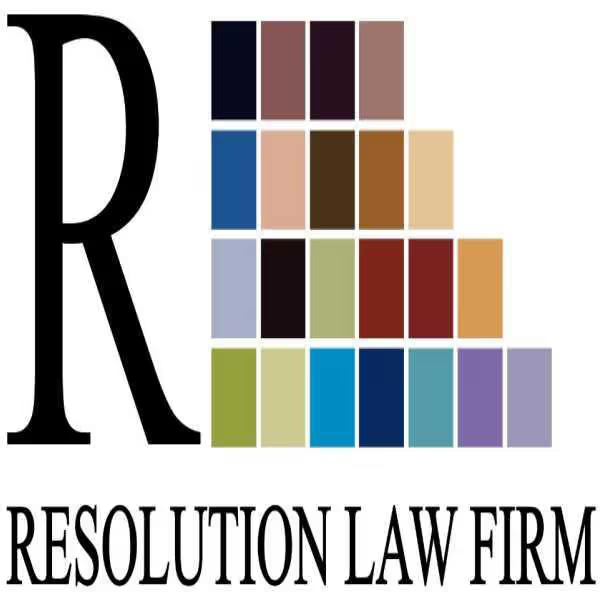
Resolution Law Firm is a premier law firm in Ikeja offering effective Debt Collection services in Nigeria, recognized for its expertise since 2015 and distinguished by awards in real estate and energy, with memberships in the Nigerian and International Bar Associations.
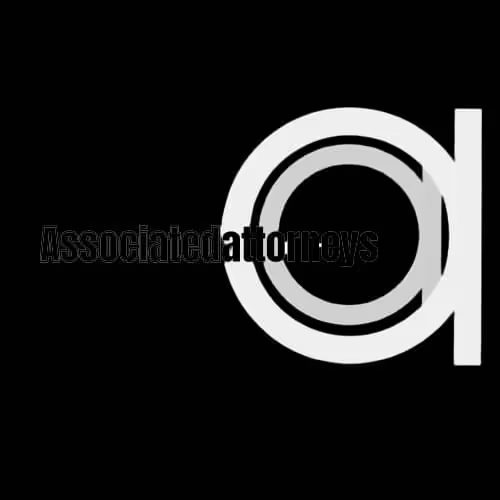
Associated Attorneys is a premier law firm in Lagos offering effective Debt Collection services in Nigeria, positioning itself as the go-to partner for debt recovery since 2006, with memberships in major professional bodies and services extending to Asia, Europe, and the USA.
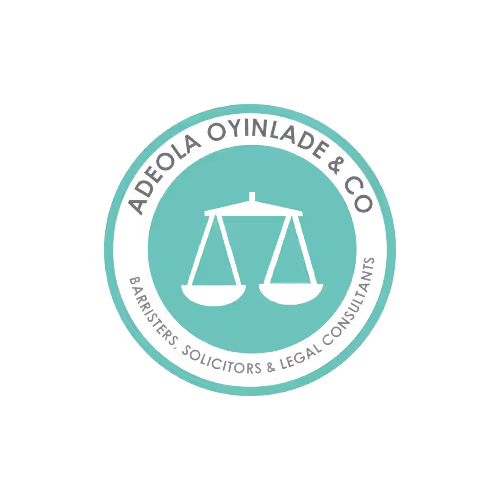
Adeola Oyinlade & Co is a premier law firm in Lagos offering effective Debt Collection services in Nigeria, recognized as the go-to partner for debt recovery with accolades such as the Nigeria Law Firm of the Year Award 2024 and memberships in the INBLF and International Bar Association.
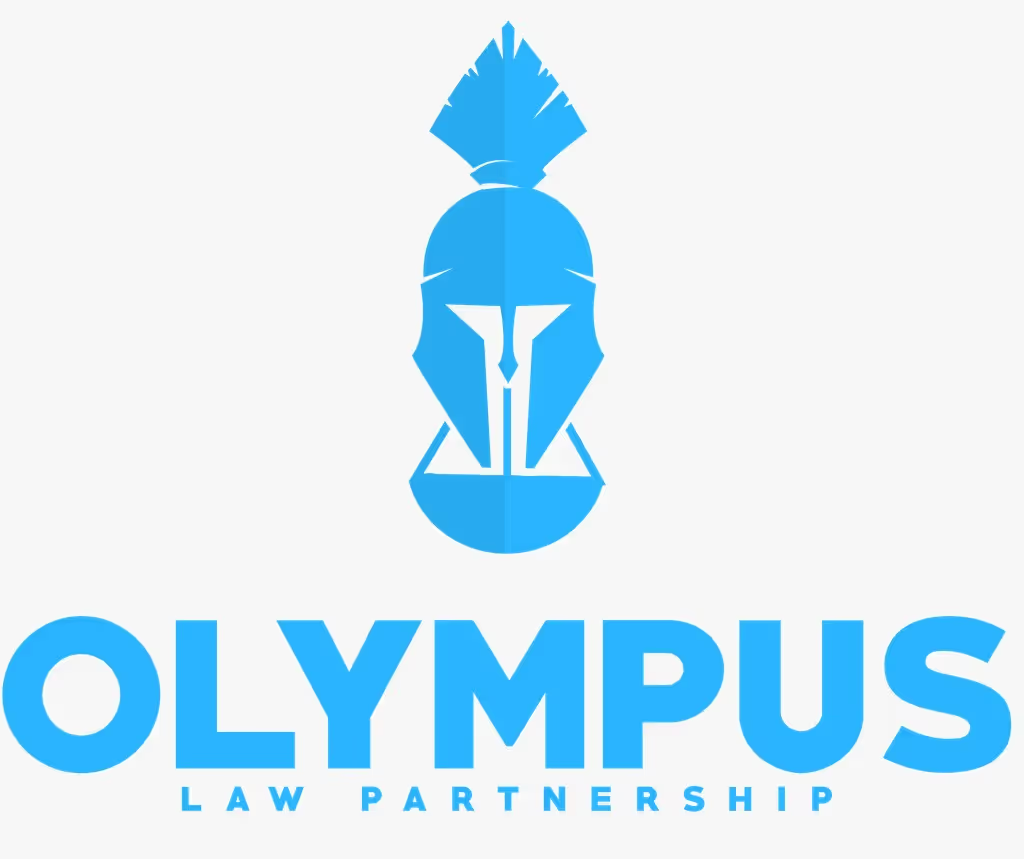
Olympus Law Partnership is a premier law firm in Ikeja Lagos offering effective Debt Collection services in NG, positioning itself as the go-to partner for debt recovery with a foundation in 2015 and recognized for its industry accolades and memberships.
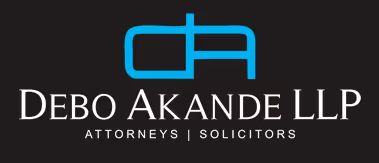
Debo Akande LLP is a premier law firm in Lagos offering effective Debt Collection services in Nigeria, positioning itself as the go-to partner for debt recovery since 2014, with memberships in international ADR societies and services extending to other African countries.

Blackfriars Solicitors is a premier law firm in Lagos offering effective Debt Collection services in Nigeria, established in 1994, renowned for excellence in litigation, and a member of the Nigerian Bar Association, serving clients with a 4.9/5 satisfaction rating.
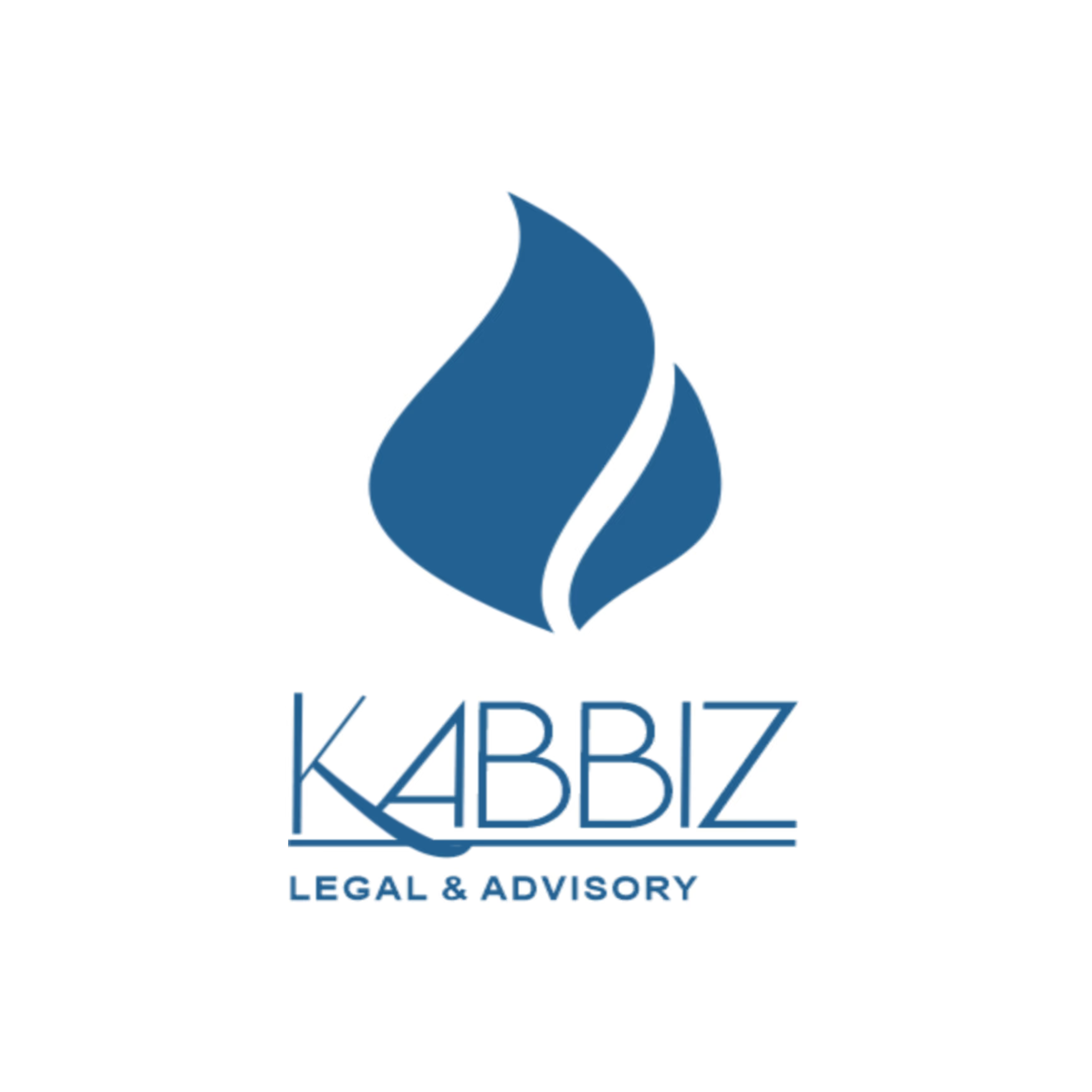
Kabbiz Legal & Advisory is a premier law firm in Lekki offering effective Debt Collection services in Nigeria, positioning itself as the go-to partner for debt recovery with memberships in IP Coster, Lawzana, and the International Bar Association.
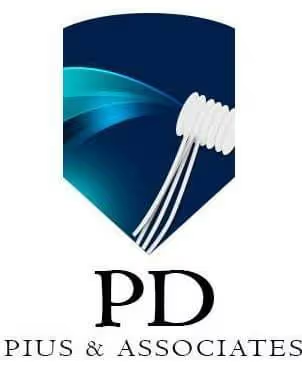
P. D. Pius & Associates is a premier law firm in Block 2 Flat 4 Mbaise Close, Garki Abuja offering effective Debt Collection services in Nigeria, founded in 2014, operating on a 10% recovery fee model, and a member of the Nigerian Bar Association.
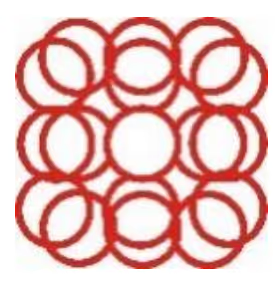
YBA & Co. Solicitors is a premier law firm in Lagos offering effective Debt Collection services in Nigeria, positioning itself as the go-to partner since 2009 with memberships in the Nigerian Bar Association and the Institute of Chartered Secretaries and Administrators of Nigeria, serving clients globally.

RecovaDebt Limited is a premier debt recovery agency in Port Harcourt offering effective Debt Collection services in Nigeria, positioning itself as the go-to partner for debt recovery with a no-recovery, no-fee model and cross-border support since 2016.
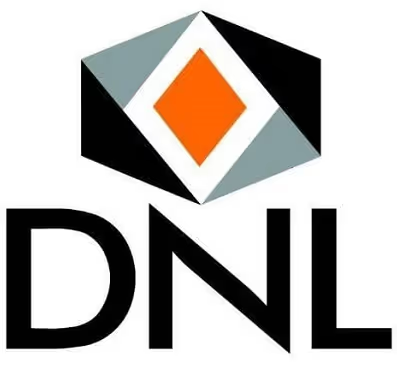
DNL Partners is a premier law firm in Lagos Island offering effective debt collection services in Nigeria, established in 2011 and recognized for its membership in the Nigerian Bar Association, ICMC, and ISMN, ensuring top-notch legal solutions.
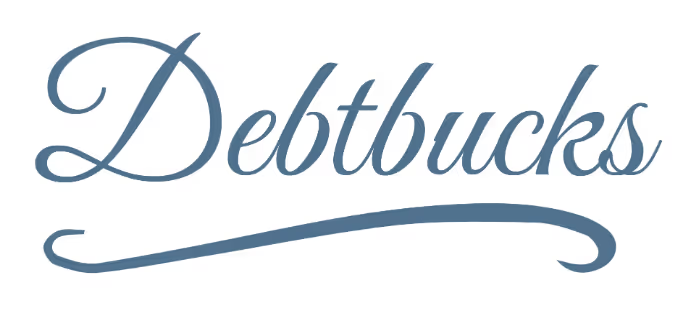
Debtbucks Recoveries Limited is a premier debt recovery agency in Nigeria offering effective risk-free Debt Collection services, recognized for a 99% success rate and memberships in BRIPAN, ADRA, and IDRPN; as an exclusive Debitura partner, it offers No Cure No Pay debt collection based on Debitura's risk-free standard terms and pricing.





.svg)

.webp)
.png)

.png)
.svg)












.svg)

